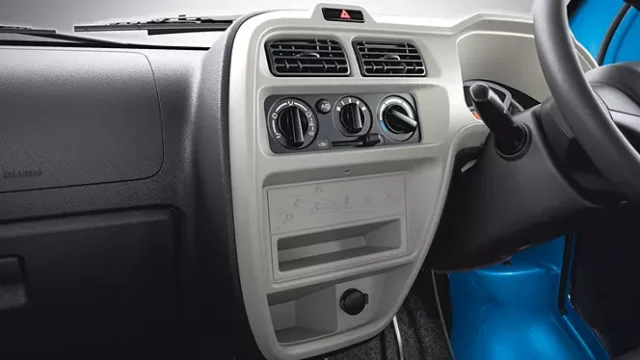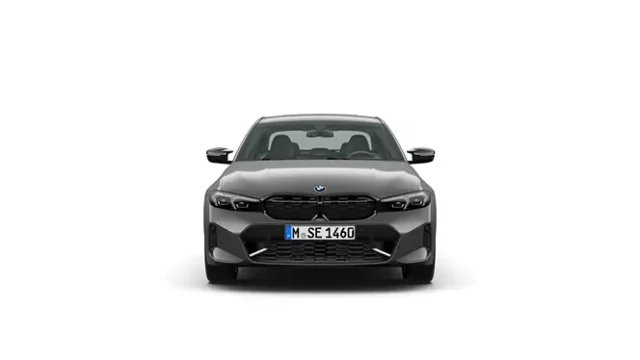Eco Car Price In India have become a symbol of the shift towards more sustainable transportation. Whether it’s an electric vehicle (EV) or a hybrid, these cars use alternative power sources such as electricity, hydrogen, or a combination of electric and gasoline engines to minimize the environmental impact.
As governments across the globe encourage the adoption of cleaner vehicles with tax incentives and rebates, eco cars have become more affordable and accessible than ever before. In India, the eco car market is slowly growing with several options available in both the electric and hybrid categories. While the initial price may be slightly higher than traditional vehicles, the long-term savings on fuel and maintenance often make these cars a smart investment Eco Car Price In India.
Contents
- 1 Eco Car Variants Price and Specs In India
- 2 Maruti Eeco Colours
- 3 Maruti Eeco Mileage
- 3.1 Why Choose an Eco Car?
- 3.2 Conclusion
- 3.3 What is the average price of an eco car in India?
- 3.4 Are there government incentives for buying eco cars in India?
- 3.5 How far can an electric vehicle travel on a single charge?
- 3.6 Are eco cars expensive to maintain?
- 3.7 Can I drive an electric vehicle on long trips?
- 4 Eeco Images
Eco Car Variants Price and Specs In India
| Variants | Price | Specs |
| Eeco 5 STR STD | Rs. 6.31 Lakh | 1197 cc, Petrol, Manual, 80 bhp |
| Eeco 7 STR STD | Rs. 6.61 Lakh | 1197 cc, Petrol, Manual, 80 bhp |
| Eeco 5 STR AC | Rs. 6.69 Lakh | 1197 cc, Petrol, Manual, 80 bhp |
| Eeco 5 STR AC CNG | Rs. 7.71 Lakh | 1197 cc, CNG, Manual, 71 bhp |
Eco Car Price Range in India
Eco Car Price In India in India can vary significantly depending on whether the car is electric, hybrid, or a plug-in hybrid.
- Electric Vehicles (EVs): Prices for electric cars in India start at around ₹10 lakhs for more budget-friendly models like the Tata Nexon EV and go up to ₹60-70 lakhs for premium models like the Mercedes-Benz EQC.
- Hybrid Vehicles: Hybrid cars like the Toyota Prius and Honda City Hybrid typically start around ₹30-40 lakhs, with more affordable options expected to come as the market grows.
- Plug-in Hybrids: These cars, which offer a combination of electric-only driving and gasoline backup, can range from ₹40 lakhs to ₹70 lakhs depending on the brand and features.
Advanced Features and Technology
Eco cars are equipped with the latest technology, not only to improve fuel efficiency but also to provide an enjoyable and safe driving experience. Some of the standout features include:
- Battery Technology: Eco cars, particularly EVs, come with high-performance lithium-ion batteries that offer a long range per charge, often 200-500 kilometers on a single charge.
- Regenerative Braking: This system recovers energy during braking, which is stored in the battery to enhance driving range.
- Smart Infotainment: Most eco cars come with touchscreen infotainment systems that support Android Auto and Apple CarPlay, allowing seamless connectivity with your smartphone.
- Advanced Climate Control: Many eco-friendly cars feature energy-efficient climate control systems to optimize energy consumption.
- Connectivity Features: With options like remote car control via smartphone apps, GPS navigation, and real-time energy usage monitoring, drivers can make the most of their eco car’s capabilities.
Safety Features
Eco Car Price In India are designed with both sustainability and safety in mind. They come equipped with several features to protect drivers, passengers, and pedestrians alike:
- Driver-Assistance Systems: Features like adaptive cruise control, lane-keeping assist, and automatic emergency braking are becoming standard in many eco cars.
- Multiple Airbags: Standard airbag systems for driver and passengers, including side and curtain airbags, help reduce injury in case of a crash.
- Stability Control: Electronic stability programs and traction control systems ensure safe handling, especially in challenging driving conditions.
- Pedestrian Protection: Some eco cars are designed with front bumpers and hoods that absorb impact in the event of a collision with a pedestrian, reducing injury risk.
- Reinforced Body Structures: Eco cars are designed with stronger materials to absorb energy during a crash, protecting passengers better.
Pros
- Lower Operating Costs: Eco cars offer significant savings on fuel. Electric cars, in particular, cost much less to run than traditional petrol or diesel vehicles.
- Environmentally Friendly: With zero tailpipe emissions, electric cars help reduce air pollution. Hybrid vehicles also have lower emissions than traditional cars.
- Quiet Operation: Electric vehicles are much quieter than gasoline-powered cars, providing a peaceful driving experience.
- Government Incentives: In many countries, including India, governments offer tax rebates, subsidies, and incentives for buying eco cars, making them more affordable.
- Reduced Maintenance Costs: Electric vehicles require less maintenance because they have fewer moving parts compared to internal combustion engines. Hybrid cars also experience less wear and tear on the engine since they rely partly on electric power.
Cons
- High Initial Cost: Despite government incentives, the initial price of eco cars is still higher compared to regular petrol or diesel vehicles, mainly due to the cost of batteries and advanced technology.
- Limited Charging Infrastructure: While the electric vehicle charging network is growing, it is still not as widespread, especially in rural or less developed areas.
- Range Anxiety: While newer electric vehicles have improved ranges, some drivers still worry about running out of battery, particularly on long trips.
- Longer Refueling Time: Charging an EV takes longer than refueling a petrol or diesel car, which can be inconvenient for those who need to drive long distances regularly.
- Limited Model Options: While the number of eco car models is growing, the options are still limited compared to traditional vehicles, particularly in certain price ranges.
Maruti Eeco Colours
| Solid White | Metallic Glistening Grey |
| Metallic Brisk Blue | Pearl Midnight Black |
Maruti Eeco Mileage
Maruti Eeco mileage claimed by owners is 19 kmpl.
| Powertrain | User Reported Mileage | Expected Mileage |
|---|---|---|
| Petrol – Manual(1197 cc) | 19 kmpl | 19.71 kmpl |
| CNG – Manual(1197 cc) | 22 km/kg | 26.78 km/kg |
Why Choose an Eco Car?
Eco Car Price In India is a smart move for those who want to reduce their carbon footprint and save on long-term fuel costs. If you’re someone who is conscious of the environment and is looking to lower your impact, eco cars are an excellent choice. Additionally, with advances in technology, these cars are becoming more practical every year, offering a comfortable and efficient driving experience Eco Car Price In India.
Eco Car Price In India Choosing an eco car also means you’re future-proofing your transportation needs. With global trends moving towards cleaner energy and stricter emissions regulations, eco cars will be a better choice in the coming years Eco Car Price In India.
Conclusion
Eco cars represent the future of transportation. Whether you’re looking for an electric vehicle that runs on clean energy or a hybrid vehicle that gives you the best of both worlds, there’s an option for every need and budget. While the upfront cost might be higher, the long-term savings on fuel, maintenance, and the environmental benefits make eco cars a worthwhile investment. As the market continues to grow, these vehicles are expected to become more affordable and accessible to a wider audience.
What is the average price of an eco car in India?
The price of eco cars in India varies widely, with electric vehicles starting around ₹10 lakhs and hybrid models typically priced between ₹30 lakhs to ₹40 lakhs.
Are there government incentives for buying eco cars in India?
Yes, the Indian government provides subsidies and incentives for electric vehicles (EVs) under programs like FAME (Faster Adoption and Manufacturing of Hybrid and Electric Vehicles) to encourage adoption.
How far can an electric vehicle travel on a single charge?
The range of an electric vehicle varies depending on the model, but most modern EVs can travel between 200-500 kilometers on a single charge.
Are eco cars expensive to maintain?
Eco cars generally have lower maintenance costs compared to traditional cars, especially electric vehicles, due to fewer moving parts and less wear and tear on the engine.
Can I drive an electric vehicle on long trips?
While EVs are becoming more capable of long-distance travel with improved ranges, the availability of charging stations can still limit how far you can drive before needing to recharge.
Eeco Images








